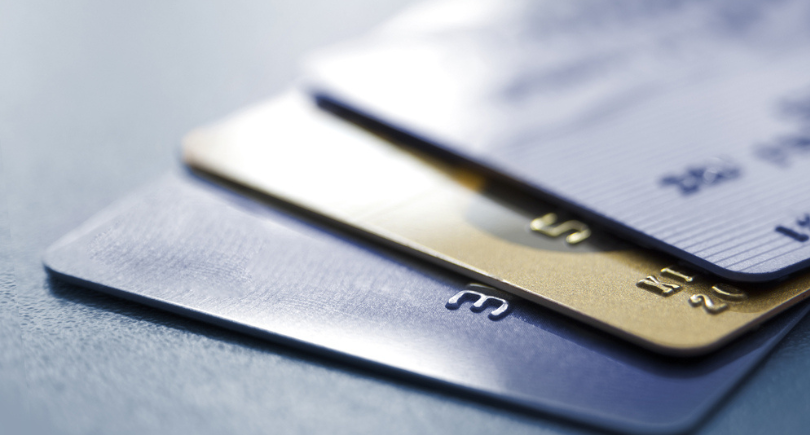
Recent data from Experian credit bureau shows the typical American has roughly four credit cards in their wallet. But is that the right number of cards for you?
It’s a question that nags many Americans. A recent analysis of Google searches by consumer lender OneMain Financial found that “How many credit cards should I have?” ranked second among the most searched questions about personal finance.
To help answer this question, we sought advice from two experts: Bruce McClary, senior vice president of membership and communications at the National Foundation for Credit Counseling, and Thomas Nitzsche, senior director of media and brand at Money Management International, a nonprofit credit counseling agency.
McClary and Nitzsche say the number of cards you carry depends on factors such as your spending habits, credit history, financial goals and appetite for rewards. In other words, there’s no magic number for how many credit cards someone should have. But to guide you toward the number that’s right for you, check out these credit card scenarios.
No credit card
If you find it hard to manage your finances or you tend to overspend, it might be best to avoid credit cards altogether.
“In this case, you might consider using a debit card or cash to manage your spending. While those options don’t help build your credit, they can help keep you from going into the red,” says McClary.
One credit card
Generally, you should have at least one credit card in order to take advantage of its purchase protections and other benefits, and to help build your credit.
If you are just starting to build your credit history or are trying to simplify your budget, having one credit card can be a good option and is in keeping with the ‘start small’ philosophy. This can help you establish a credit history, keep track of your spending and avoid overextending yourself. A single credit card can also be easier to manage and monitor.
Two credit cards
Maintaining two credit cards can enable you to separate certain expenses or reap benefits from a couple of rewards programs, says McClary. For instance, you might use one card for everyday expenses and a second card for travel expenses.
However, experts warn that chasing rewards with two or more credit cards may be offset by the fees and interest charges you might rack up.
Nitzsche said that when he was a credit counselor, some clients he spoke with refused to give up their rewards credit cards even though they were losing money to interest charges.
If you find yourself in a situation like that, it’s time to create a debt payoff plan and reassess how many credit cards you use, says Nitzsche.
For consumers who are confident in their ability to pay their accounts in full each month, having several credit cards can be the best way to maximize rewards based on the type of spending.
Nitzsche said he carries two rewards cards with rotating cash-back categories.
Three or more credit cards
It might make sense for a frequent traveler or a rewards fanatic to keep three or more credit cards, says McClary.
“However, having multiple cards can also increase the risk of overspending and accumulating debt,” he added. “If you do have multiple cards, it’s important to manage them responsibly and keep track of your spending.”
According to Equifax, it’s generally a good idea to have at least two or three active credit card accounts. However, some recommendations put the ideal number at five.
“Lenders and creditors like to see a wide variety of credit types on your credit report,” says Experian. “Keeping up with multiple credit accounts suggests to lenders that you understand how credit works and know how to manage the amounts you borrow.”
But that alone shouldn’t dictate how many cards you have.
“There is no specific number of credit cards considered right for all consumers. Everyone’s credit history is different,” Experian says.
How does the number of credit cards you have affect your credit score?
The number of credit cards in your wallet can affect all of the factors that go into computing your FICO credit score:
- Payment history makes up 35% of your score — If you have a lot of credit cards, you run the risk of falling behind on payments and damaging this component of your score.
- Amounts owed make up 30% of your score — Too many cards might tempt you to spend more, which in turn can increase your use of available credit and hurt this credit-scoring factor.
- Length of credit history makes up 15% of your score — If you sign up for new credit cards, it reduces the average length of your credit history and might put a dent in your score.
- Credit mix makes up 10% of your score — Leaning too heavily on credit cards might mean you’re failing to maintain a broad mix of credit, including personal loans.
- New credit makes up 10% of your score — When you obtain too many credit cards around the same time, it signals that you might be a big risk for credit card issuers.
➤ FURTHER READING:A guide to understanding different credit scoring models
How to responsibly manage multiple credit cards
If you have several credit cards, here are four things you can to do stay out of trouble:
- Watch your balances. Experts generally suggest using no more than 30% of your available credit. Keeping that number at or below 30% can benefit the component of your credit score that takes credit balances into consideration.
- Pay off monthly balances in full. Wiping out credit card balances each month means you’re not piling up interest charges, which might offset the value of any rewards you’re earning.
- Make timely payments. To keep your credit in good shape, make monthly payments by the due date. This way, you can avoid late fees as well as blemishes on your credit report. Consider automating your payments to stay on top of your credit card bills.
- Use all of your cards. At least occasionally, be sure to make purchases with every credit card. This way, an account won’t go dormant, which can damage your credit.


